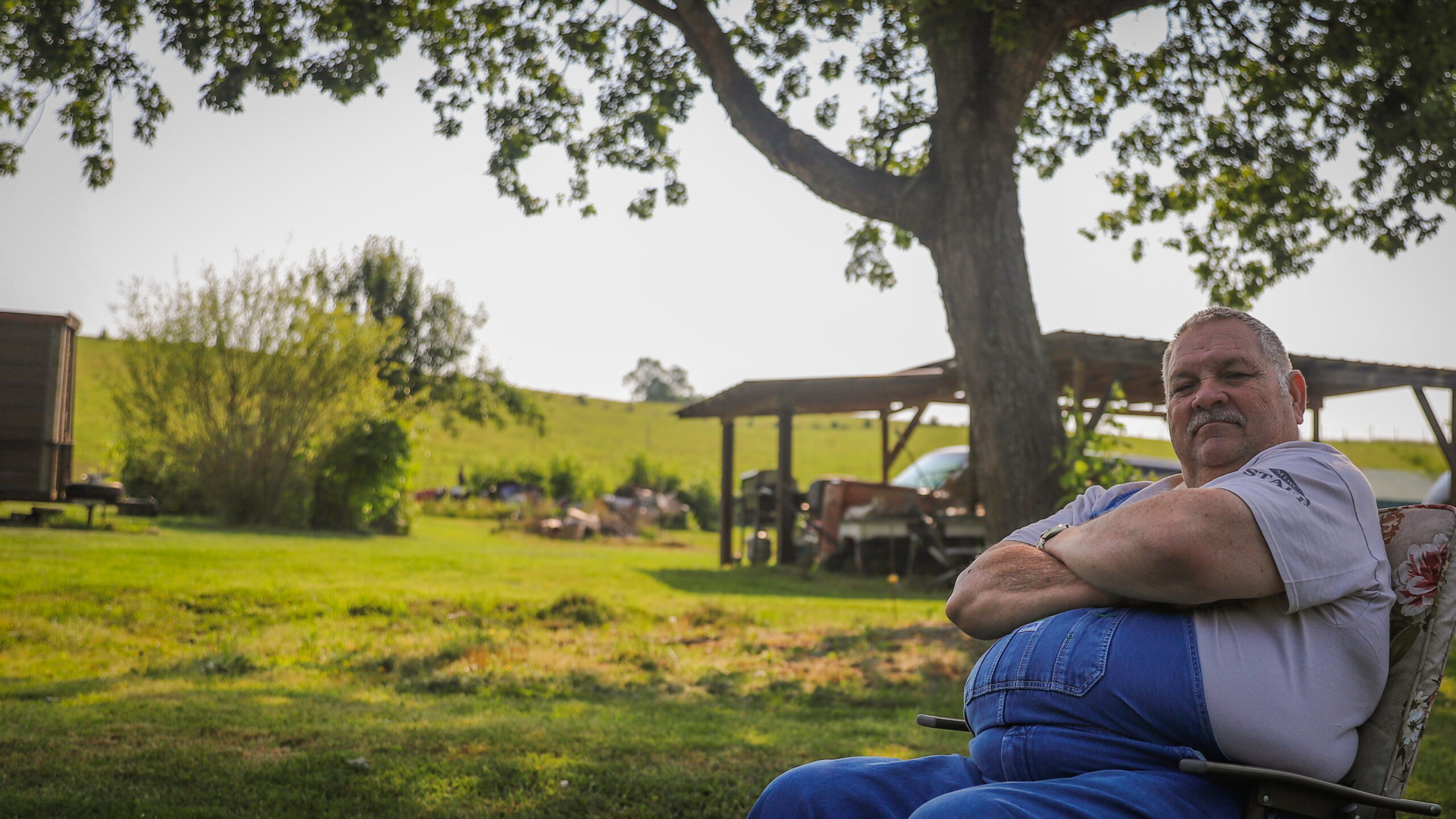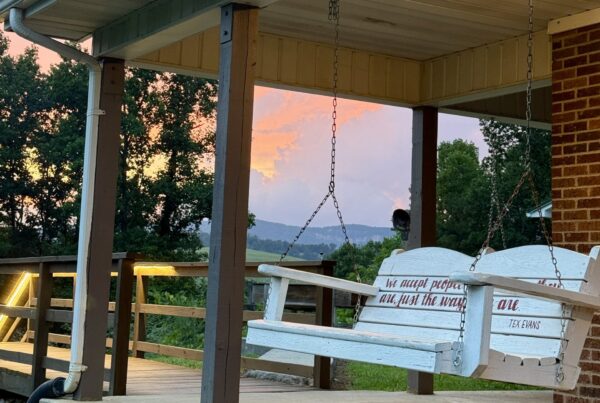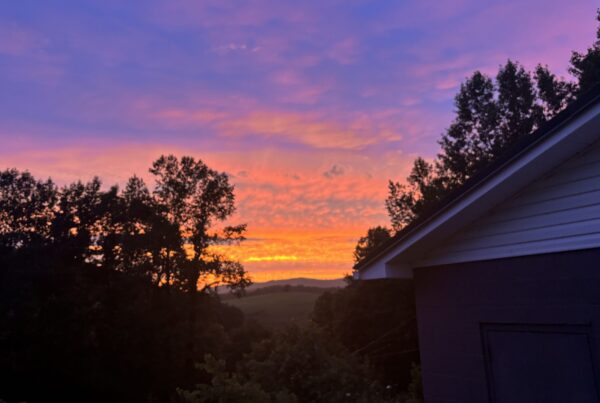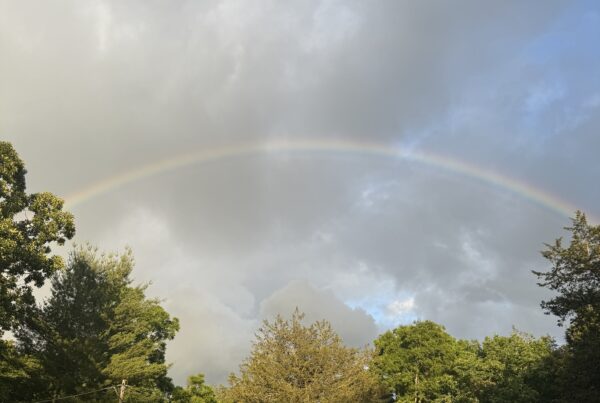This was “Week 1” for most ASP centers. It’s the first week of volunteers, so it’s when ASP’s repair work really begins for the summer. As everyone gets into their stride, I have been looking back at all I’ve experienced these first three weeks, especially the people I’ve met, the history I’ve heard, and the lessons I’ve learned.
One man I learned a lot from is Kyth. I’ve been able to talk with him a couple of times, once with the rest of the Story Gathering team and once on my own. He lives in Virginia and has been involved with ASP for a while. He was a Construction Consultant for ASP summer staffers and helped build one of the ASP centers.
In recent years he’s had some health problems. He was going to need ramp access to his house. For a while, he and his wife got along okay, but they recently decided to apply for ASP repairs.
I pulled into his driveway and knocked on the door. After opening the door, he said, “Come on in, Isaac,” and swept his hand toward a rocking chair. I sat down, and he sat across from me in an armchair.
After college, Kyth followed a girl back to Virginia. Before college, he grew up in Kentucky, and during our visit, he got to talking about growing up there on a farm. His family would go to the store and buy a few staples like flour and salt. The rest of what they needed they grew, raised, or foraged.
Kyth doesn’t remember ever getting colds as a kid, but not because of the medicine you might expect. His grandfather would dig up the roots of sassafras plants and make them into a tea. Apparently, the sassafras tea did its job because Kyth doesn’t remember going to a doctor until he was in college.
You should know that recent studies have shown sassafras to contain a chemical called safrole, which makes it toxic. So despite its benefits, the FDA has banned its use. However, you can now buy sassafras root bark with the safrole removed so it is safe to consume.
Kyth expressed some sadness that a lot of people don’t remember things like that anymore. He said he thinks we’re missing out on some memories when we leave old knowledge like that behind. The same, he said, goes for history. For Kyth, we also lose something when we forget the history of what came before us.
As he talked about their house and land, Kyth made it quite obvious that he knows the history of their land. He told me that the gravel path running in front of the house used to be Harlan Road. He said, “It ran all the way from Jonesville to Harlan, Kentucky.”
“Now, this house that ASP worked on for me, the front room was actually built in 1769, and it was a way station,” he said. People traveling along Harlan Road would stop at the store to restock supplies. Eventually, in the early 1800s, they decided to live there, so they added on to make it into a house.
From the waystation days, the front room included “a thing they called a cistern, which was actually a water well.” When ASP came to make repairs on the house, it turned out the cistern was still there. They asked Kyth if he wanted them to remove it, and he said he would rather keep it there. So, they came up with the solution to build a storage closet around it that preserved it within. He told me, “I just didn’t have the heart to get rid of that history.”
That’s the same reason he wanted to repair this house rather than get a new one. Although Kyth’s house had some issues, he didn’t want to leave behind all its history. He said, “I figure it’s lasted this long. I might as well see if it will last longer.” So, he applied for repairs, and he still lives there.
“It’s sound construction,” he said. “As long as we’re going to live, it’ll be here.”
Kyth taught me how sometimes leaving behind old things isn’t all it’s cracked up to be, and old knowledge can be helpful too. Houses can get old, especially when they were built in the 1800s, and it’s easy to leave behind something that needs fixing. It takes more work to stick to something for the long haul, repairing and improving things when needed. But Kyth reminded me of what we hold on to when we stay.
We hold on to the knowledge, history, and love of a place. Those things only grow when we’ve stayed somewhere long enough for it to need repairs.
Isaac Wood
Story Gathering Intern




